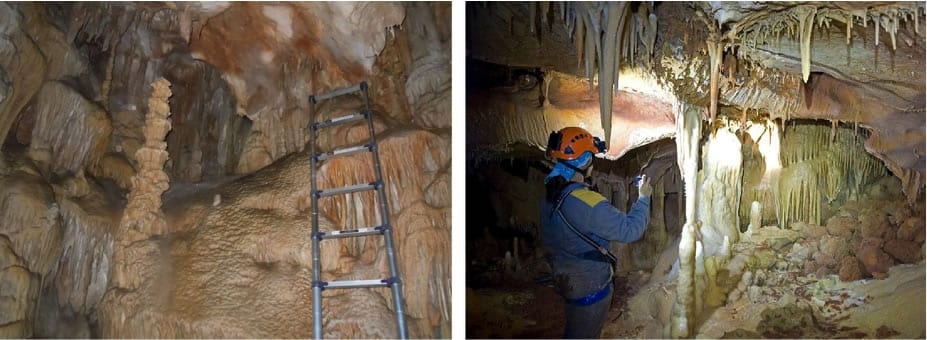Associate Professor of Geology David Gillikin was awarded a National Science Foundation (NSF) Paleo Perspectives on Climate Change (P2C2) grant for his collaborative project “Bridging the Gap from Northern Iberia to Northwest Africa to Reconstruct Atmospheric Dynamics and Hydroclimate for the Last 2,500 Years” (Award 1805163).
This multi-institutional team seeks to provide a spatial and temporal context for on-going and future climatic changes in the Mediterranean region by constructing a 2,500-year-long history of hydroclimate variability from precipitation-sensitive stalagmites formed in caves in central and southern Portugal. Rainfall in Iberia is strongly correlated to the strength of the Azores sub-tropical high-pressure system, and these cave sites lie at its climatological epicenter.
This project aims to bridge the hydroclimate knowledge gap for the last 2,500 years using sub - decadally - resolved, multi-proxy stalagmite records (carbon and oxygen stable isotope ratios, trace element abundances, growth laminae, and high precision Uranium/Thorium dating) from cave sites in central and southern Portugal. Based on measuring, counting, and comparing the uppermost Uranium/Thorium age from one stalagmite, these laminae appear to be annual in nature. Resulting data will be combined and evaluated with similarly-resolved hydroclimate - sensitive records from northern Iberia (Spain) and northwest Africa (Morocco), creating a latitudinal transect that will allow spatial and temporal constraints to be placed on the Azores High.
This research could also provide a significant spatial bridge between the only existing high-resolution paleo - hydroclimatic reconstructions (northern Morocco and northern Spain) from this zone. Together, these time series will allow for a more comprehensive evaluation of dynamical changes in the regional climate system through time, particularly in the spatial extent and intensity of the Azores High.
It has the potential to transform the understanding of the nature and drivers of past Iberian hydroclimate variability, and through comparison with simulations, how it may respond to future anthropogenic forcing. The development and synthesis of these high resolution and precisely dated records will be of value to the broad climate/paleoclimate communities.
The collaborative team of researchers also includes Dr. Alan D. Wanamaker, Jr. (Iowa State University), Dr. Rhawn F. Dennison (Cornell College), Dr. Caroline C. Ummenhofer (Woods Hole Oceanographic Institution), and Dr. Yemane Asmerom and Dr. Victor Polyak (University of New Mexico).
